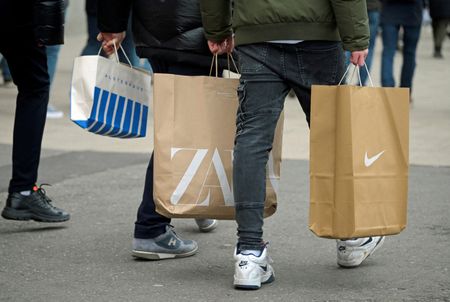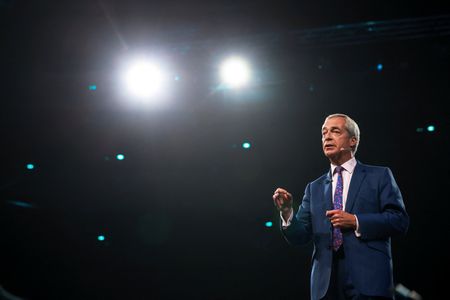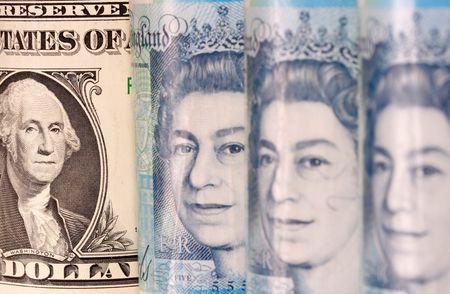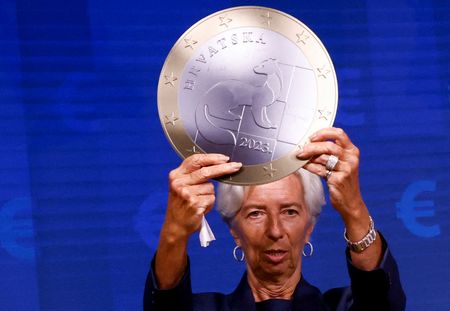FRANKFURT (Reuters) -Euro zone consumers have altered their consumption habits in anticipation of U.S. tariffs, moving away from American products and reducing discretionary spending, a study published by the European Central Bank on Monday found.
Euro zone consumers, sitting on ample savings built up in the years since the pandemic, have been cautious in making purchases all year as uncertainty over tariffs kept key parts of the bloc’s economy in limbo.
“In response to tariff-related concerns, consumers are altering their spending habits in notable ways,” the ECB said in an Economic Bulletin article.
The ECB found that around 26% of its survey respondents reported switching away from U.S. products. Around 16% indicated they have reduced their overall spending.
“High-income households are more likely to switch away from U.S. goods, while lower-income households are more inclined to cut back their overall spending,” the ECB said, adding that financial literacy also impacted these decisions.
Nearly all of the spending cuts impacted discretionary items while spending on necessities remained largely unaffected, the ECB added.
The ECB added that some consumers have also adjusted their inflation expectations upward, including for the longer term, suggesting that the perceived impact of tariffs on inflation may not be entirely transitory.
(Reporting by Balazs Koranyi; Editing by Joe Bavier)











